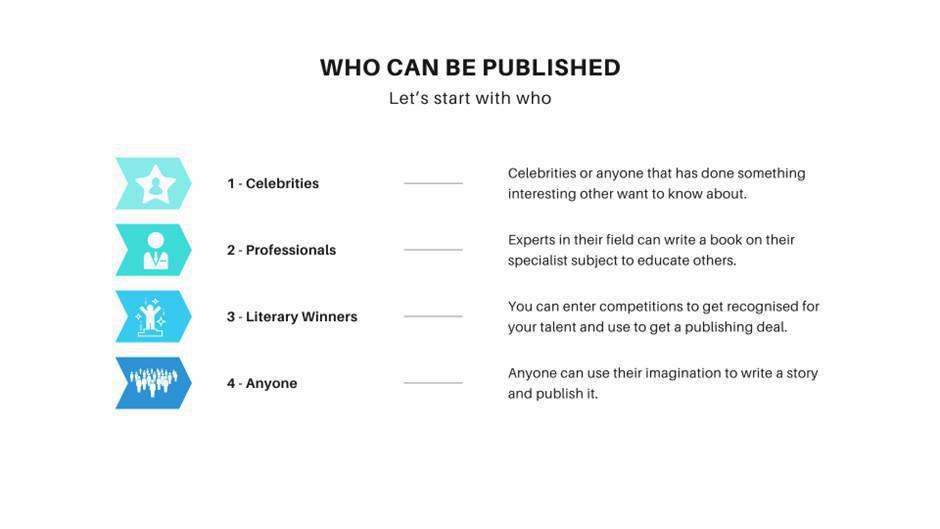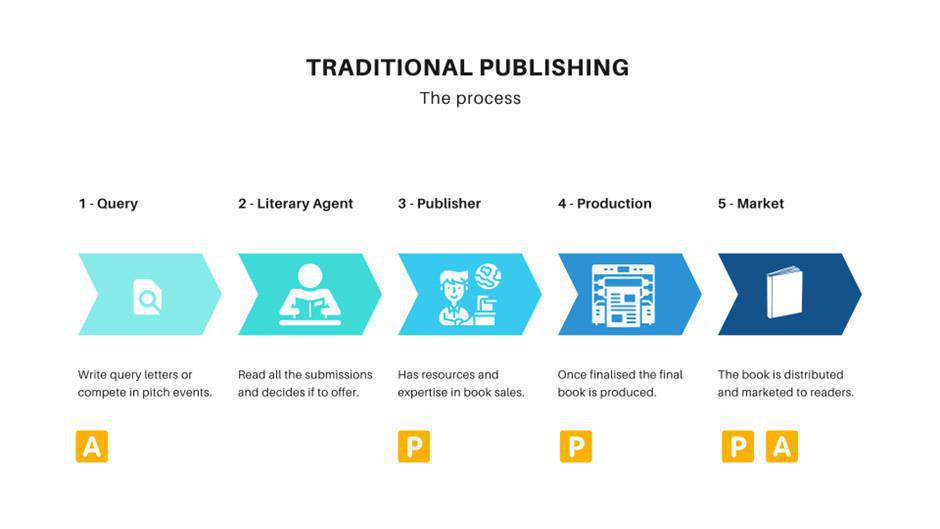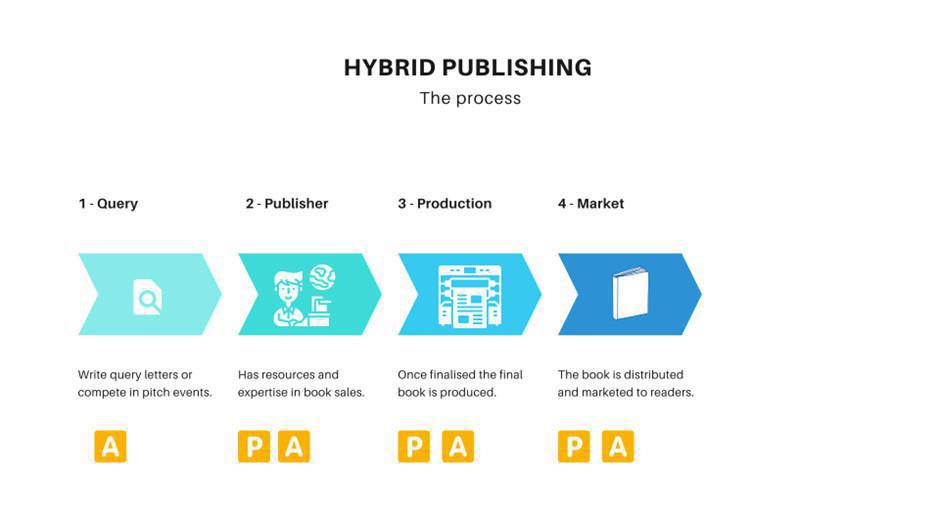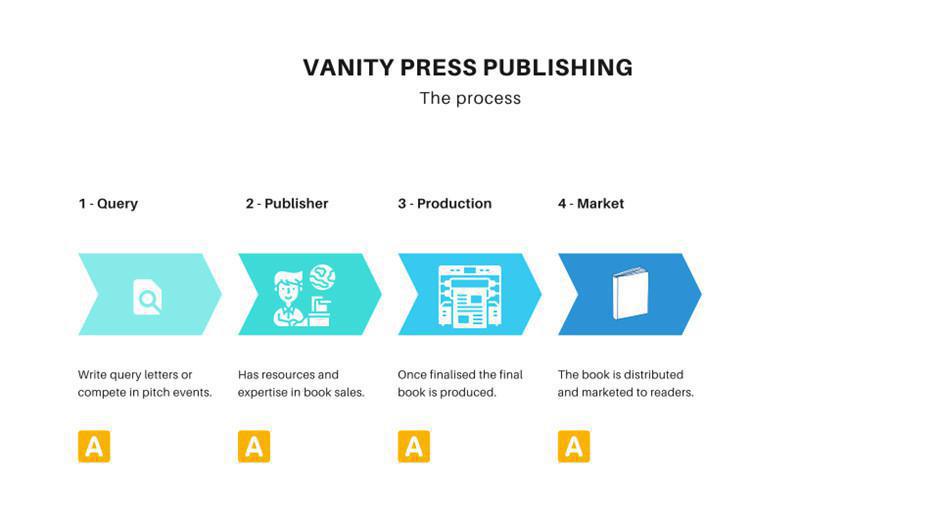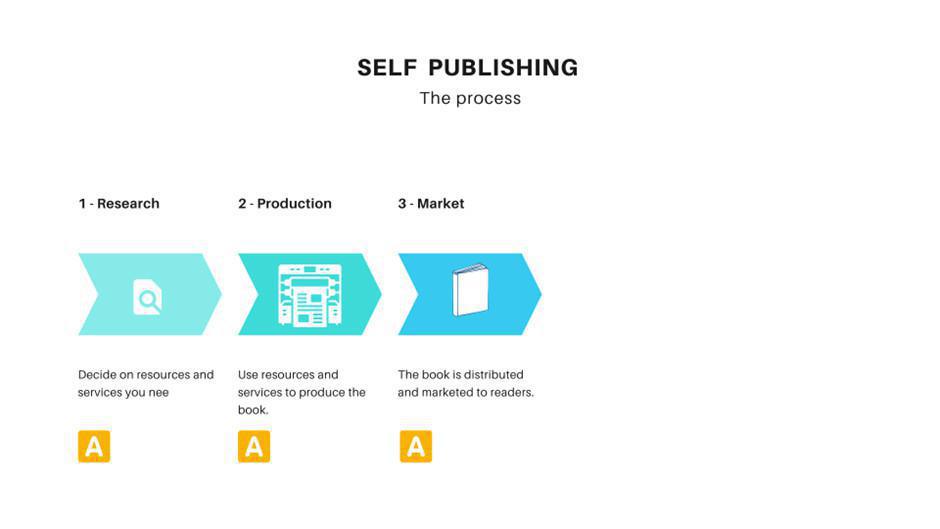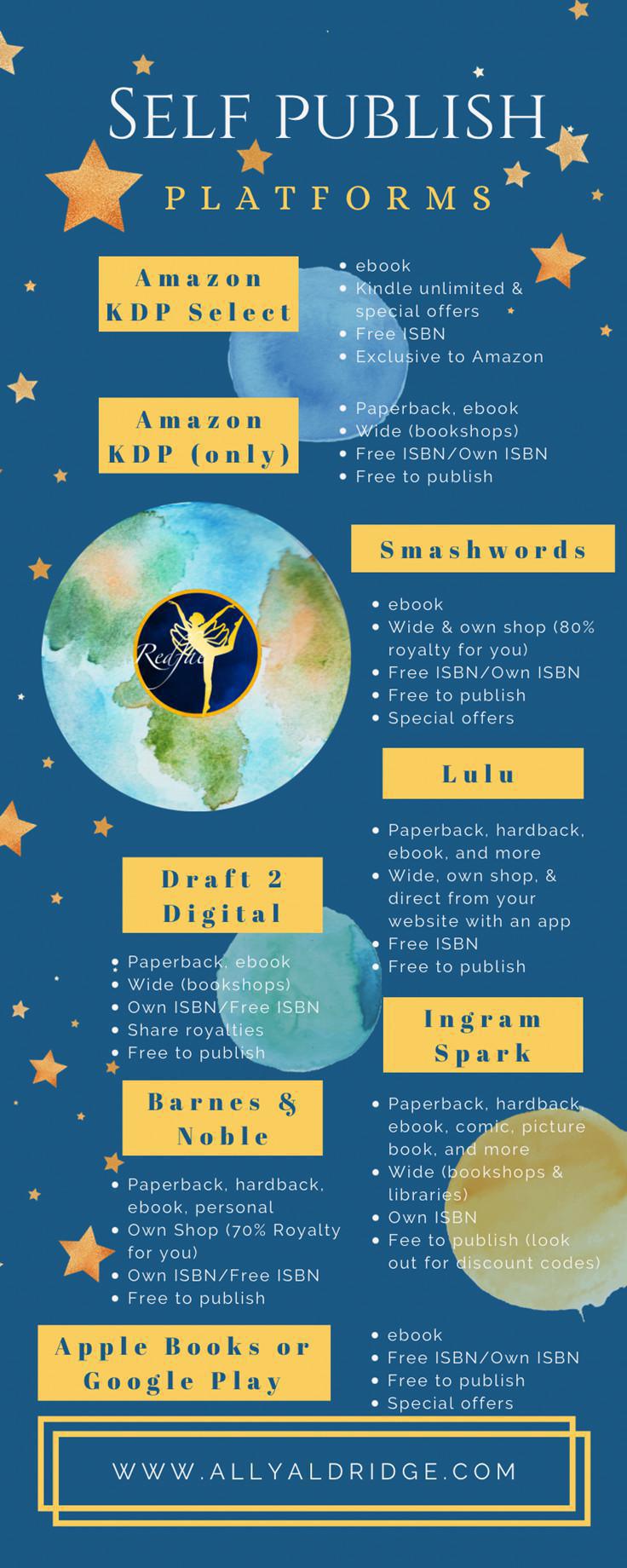If you have been inspired by Ally's previous blogs, you may be wondering how to publish your own writing, or if you're new here - you may be wondering who Ally is. Ally is a writer, she has multiple books published, and we appreciate all that she sends over to us. Now, lets find out the different ways of publishing!
I wanted to write this article because it comes up a lot in writers forums. Many start out unsure where to start, or get stung by choosing an option that wasn’t right for them.
Firstly there are different routes depending on who you are and what your book is about.
d
CELEBRITIES:
Celebrities can be anyone from royalty to pop stars or even footballers girlfriends. They also can include anyone that has had an interesting life event like survivors or people that captured others attention like YouTubers. These people often don’t need to find a publisher as they will be approached with a book deal. These people are desirable because they already have an established audience interested in them.
When I went to YALC, Literary Agent, Chloe Seaver introduced her new author and how she find her. Laura Coryton, author of “Speak up!” is an activist residing awareness of period poverty. Chloe saw her movement as empowering for young women and got her to write a book aimed at teens to inspire the next generation.
PROFESSIONALS:
Anyone that is an expert in their field and a skill for simplifying information can write a book to educate others. It doesn’t have to be your profession. It could be a hobby you are passionate about.
It doesn’t need to be anything heavy. People often want to know how to get started. They want the basics to begin with.
If you do plan to write a book like this, you don’t need to write the whole book to query publishers. You can pitch the idea.
LITERARY WINNERS:
Entering writing competitions and winning can boost your credentials and help you get noticed. Some competitions run by publishers will include an offer to publish.
ANYONE:
Anyone can write a story. It’s fun to let your imagination create a world, characters, and plot. But because literally anyone can sit down and write a story it is the most competitive.
To develop your talent, start out doing it for fun. If you choose to publish, it can help to see what stories are in demand. This is called writing for market. However, the market is constantly changing and writing a novel is a big project, it’s most important you write the story you want to write.
TRADITIONAL ROUTE:
This is often the most desirable route because once an author gets a deal, the publisher will pay and organise most things. And, the publisher will usually give the author a lump sum upfront and royalties on sales.
Most publishers are presses belonging to The Big Five a nickname giving to the leading publishing houses in the UK & US, although there is a merger so this could soon be The Big Four. These publishers are Penguin Random House, Macmillan, Hachette, HarperCollins and Simon & Schuster. Publishing houses not owner by them are called Small Presses.
Usually you need a Literary Agent first. To find one, many writers use the Artists & Writers handbook. This book is mixture of articles and directory of agents and publishers. Once you find one that is interested in your type of book, you need to research them online to discover their query process.
Most agents want writers to send them a query letter, synopsis, and a sample of the manuscript formatted to their standard.
Agents can take several weeks to get back to you. It’s not uncommon to query more than one agent at a time. I’d recommend keeping a spreadsheet so you can see how long it has been and the outcome.
However, there are other ways to get an agents attention. You could attend a Pitch Event. For this you will need to prepare a sentence that sums up your novel in an intriguing way.
Example Pitch: Teen Wolf but with mermaids set in a British high school.
Pitch Events can take place at book festivals or online. Pitch Mad is a popular one on Twitter. The benefit of pitch events is the response is instant. Beware if you get a request on Twitter from an Agent or Publisher, you should check them out to make sure you trust them.
If a Literary Agent makes an offer it’s up to you whether you want to accept their terms. In addition, once they do take you on they will then start querying publishers. If they can’t find a publisher that’s interested then you have to start the process from scratch.
If there is an interested publishers they will make an offer. If you have a Literary Agent, they’ll try to get you a good deal. If you went direct to a publisher you will need to decide if you agree to their terms.
The publisher will then arrange for your book to be edited. This often comes back to you to action what needs to be done. There will be several rounds of editing (different types of editing). They will also sort out your cover, the formatting, production, distribution, and market your book.
You will also be expected to market your book. Depending on how big your publisher is and how famous you are will depend on how much support you get. Authors starting out often have to prove themselves so need to market themselves more.
With their wealth of experience and connections, this route has the potential of making big money including translation to multiple languages, movie deals, and potentially 6 figure offers. In addition, new authors are promoted alongside well known authors enabling them to tap into an already existing large audience. However, this is the most challenging book deal to get and less than 2% of authors will get a book deal. You have a better chance if you have over 10,000 engaged followers on social media.
HYBRID PUBLISHING:
It is easier to get a hybrid book deal, because the cost risk is shared between the author and publisher.
The author will benefit from the publishers expertise and in-house services. They will instruct the author on editing, formatting, cover design, production, and marketing. However the costs and profits are shared between both parties and there’s no upfront lump sum. Both parties are engaged in promoting the book as they equally will benefit from sales.
Hybrid publishers are often upfront about the costs involved. Sadly, some Vanity Presses have tried to mislead authors into thinking they are offering a hybrid deal but are not.
VANITY PUBLISHING:
This is when an author pays a publisher to produce their book. This is ideal when all the author wants is to say they are published, and sell a few copies to friends or family.
However, this has got a bad name as some vanity presses are very expensive with hidden costs and hard sales to get more money out of the author. As the author paying them is what makes their money, they have no incentive to sell the book, even if they get a cut of any profit. All the costs fall on the author and they can only use the publishers services which may not be the quality they want. Often authors find themselves out of pocket and disenchanted by the experience.
SELF PUBLISHING:
From the diagram, Self Publishing might look like the easiest option as it has less steps but that’s because the author is the publisher.
Self Publishing has come a long way and is much easier today than it once was but the author does everything… sort of.
First, you need to research. I could do a whole article on self publishing because there are so many options. The easiest would be to go exclusive with Amazon. But, if you want to be in bookshops you need to look at wide distribution like Ingram Sparks or Draft2Digital. I created the below info graphic last year summarising what each aggregator offered, but they are constantly changing their offers to be competitive.
You also need to make sure your manuscript is ready to publish. You will need to research the services you plan to use like editors, formatters, cover designers, etc. A good way to find these are to join Indie communities like World Indie Warriors
Depending on your aggregator you may need to buy an ISBN. You will need one for each format of your book, i.e. eBook, paperback, hardback, audio, etc
Self publishing is attractive because it allows the author creative control. They can also shop around for the best service and price to meet their needs. It can be overwhelming to be responsible for every choice, cost, and quality control.
Indie Authors are a small business and responsible for their own marketing. It can be challenging to get noticed, especially when starting out with only one book to talk about.
WANT MORE?
If you found this article useful, please check out my blog, Instagram, and YouTube channel where I share lots of tips on writing and publishing.
AUTHOR LINKS
Website: www.allyaldridge.com
Instagram: @redfae https://www.instagram.com/redfae/
YouTube: @authorallyaldridge https://www.youtube.com/channel/UCtb57ts-qOm8jKTh_ucj78g
Goodreads: Ally Aldridge https://www.goodreads.com/author/show/8108229.Ally_Aldridge
Amazon Author Profile: Ally Aldridge https://www.amazon.co.uk/-/e/B08KNGFZDC


